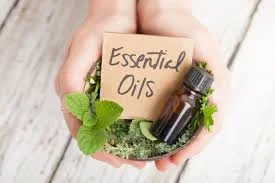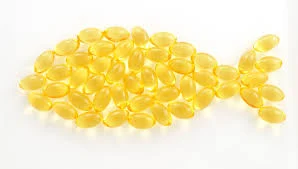"Unlock Healthy Hair: Causes of Hair Loss and Effective Home Remedies with Beneficial Oils"
Understanding Hair Loss: Causes
and Home Remedies for Healthy Hair
Hair loss is
a common concern affecting people of all ages and genders. Understanding the
causes behind hair loss is essential for implementing effective remedies and
promoting healthy hair growth. In this article, we will delve into the various
factors contributing to hair loss and explore home remedies, including the
benefits of different oils, to nurture your locks back to health.
scalp massages multiple benefits for preventing hair loss.
Causes of Hair Loss
1. Genetics (Androgenetic Alopecia
Genetic
factors play a significant role in hair loss. Androgenetic alopecia, commonly
known as male-pattern baldness or female-pattern baldness, is an inherited
condition that leads to gradual hair thinning.
2. Hormonal Changes and Medical
Conditions
Hormonal
changes due to pregnancy, childbirth, menopause, and thyroid problems can
contribute to hair loss. Medical conditions such as alopecia areata and lupus
may also lead to hair loss.
3. Medications and Supplements
Certain medications, including those for cancer, arthritis, depression, gout, and high blood pressure, can cause hair loss as a side effect. Additionally, excessive intake or deficiency of certain vitamins and minerals may impact hair health.
4. Physical and Emotional Stress
Physical stress from surgery, illness, or traumatic events can result in temporary hair loss. Emotional stress and mental health conditions can also contribute to hair thinning.
5. Poor Diet and Nutrition
A diet
lacking essential nutrients, especially vitamins A, E, and B vitamins, can
adversely affect hair health. Protein deficiency is also linked to hair loss.
6. Tight Hairstyles and Hair
Treatments
Frequent use of tight hairstyles like braids or ponytails can cause a type of hair loss called traction alopecia. Chemical treatments such as perms and dyes can damage the hair and lead to breakage.
Home Remedies for Healthy Hair Growth:
Now that we
understand the common causes of hair loss, let's explore effective home remedies, focusing on
the benefits of various oils.
Home Remedies
Benefits:
Prevents
Protein Loss: Coconut oil contains lauric acid, which penetrates the hair shaft
and reduces protein loss. This is crucial for maintaining strong and healthy
hair.
Enhances Scalp Health: A 2021 study found that coconut oil
applied to the scalp can enrich the scalp's microbiome, promoting overall scalp
and hair follicle health.
Example:
Apply warm
coconut oil to your scalp and hair, massaging it gently. Leave it on for at
least 30 minutes before washing it out. This can be done once or twice a week.
2. Argan Oil
Benefits:
Rich in
Nutrients: Argan oil is rich in vitamin E, essential fatty acids, and
antioxidants, promoting overall hair health.
Prevents Dryness: It helps to moisturize the hair,
preventing dryness and brittleness.
Example:
Take a few
drops of argan oil and massage it into your hair and scalp. Leave it on for a
few hours or overnight before washing it out.
3. Castor Oil
Benefits:
Stimulates Hair Growth: Castor oil is known for its ability
to stimulate hair growth by improving blood circulation to the follicles.
Thickens Hair: Regular use can contribute to
thicker, fuller hair.
Example:
Create a
castor oil hair mask by mixing it with a carrier oil like jojoba oil. Apply the
mixture to your scalp, leave it on for an hour, and then wash it out.
4. Olive Oil
Benefits:
Moisturizes and Conditions: Olive oil is an excellent natural
conditioner, moisturizing the hair and preventing breakage.
Rich in
Antioxidants: The antioxidants in olive oil help combat oxidative stress,
promoting a healthy scalp.
Example:
Warm olive
oil and apply it to your hair, focusing on the ends. Leave it on for 30 minutes
before washing it out.
5. Rosemary Oil
Benefits:
Stimulates Hair Growth: Rosemary oil has been shown to
stimulate new hair growth and prevent hair loss, making it a valuable addition
to your hair care routine.
Example:
Mix a few
drops of rosemary oil with a carrier oil like jojoba oil and massage it into
your hair and scalp. Leave it on for at least 30 minutes before washing.
6. Tea Tree Oil
Benefits:
Antifungal Properties: Tea tree oil has antifungal
properties that can help maintain a healthy scalp and prevent conditions that
lead to hair loss.
Reduces Dandruff: Regular use can reduce dandruff and
promote a clean, flake-free scalp.
Example:
Add a few
drops of tea tree oil to your shampoo or mix it with a carrier oil before
applying it to your scalp. Leave it on for a few minutes before rinsing.
7. Viviscal
Viviscal, a natural hair growth supplement, contains a combination of shark and mollusk powder, organic silica, vitamin C, biotin, and zinc. These ingredients support cell regeneration and strengthen existing cells, promoting hair growth. Results usually appear after taking the pills twice daily for at least 6 months.
5. Fish Oil
Fish oil
supplements, rich in proteins and omega fatty acids, can improve hair density,
diameter, and reduce hair loss. Omega-3 fatty acids in fish oil also help
reduce inflammation, boost immunity, and contribute to a healthier hair growth
cycle.
Consult a
healthcare professional before adding supplements to your diet, and follow the
recommended dosage.
6. Ginseng
Ginseng
supplements stimulate hair follicles, promoting hair growth. Ginsenosides, the
active components of ginseng, are believed to be responsible for this positive
effect. Always follow directions and check for possible side effects when
taking supplements.
7. Onion Juice
Despite the
smell, onion juice may promote hair growth and treat patchy alopecia areata, as
indicated by a 2014 study. It's also thought to improve circulation, vital for
hair follicle development and growth. Apply freshly squeezed onion juice to
your scalp, leave it in for at least 15 minutes, and follow up with shampoo.
8. Rosemary Oil
Rosemary oil
may stimulate new hair growth and prevent hair loss, according to a 2020
review. A 2015 study found it to be as effective as minoxidil for treating
androgenetic alopecia. Mix a few drops with a carrier oil and massage into your
hair and scalp or add it to your daily shampoo and conditioner.
9. Geranium Oil
Extracted
from the leaves of the fragrant geranium plant, geranium oil promotes hair
growth and boosts circulation, as shown in a 2017 animal study. Mix a few drops
with a carrier oil and apply directly to your hair or add it to your shampoo
and conditioner.
10. Lemon Oil
A 2016
animal study suggested that lemon oil maintains a healthy scalp and encourages
hair growth. Apply fresh lemon juice to your scalp 15 minutes before shampooing
or use diluted lemon essential oil in a carrier oil as part of a hair mask.
Remember,
natural treatments may take a few months to yield noticeable results, and
consulting a doctor is advisable if these methods don't work for you.
Conclusion
Understanding the causes of hair loss empowers us to take proactive steps towards healthier, more vibrant hair. Incorporating these home remedies, particularly the benefits of various oils, into your routine can contribute to improved hair health. Experiment with these natural solutions, be patient, and consult a healthcare professional if you experience persistent or severe hair loss.
FAQs
Q: Can home remedies completely reverse hair loss?
A: While home remedies can promote hair health, the effectiveness varies among individuals. Severe or persistent hair loss may require professional intervention.
Q: How often should I use these oils for the best results?
A: The frequency depends on your hair type and the specific oil. Generally, once or twice a week is a good starting point.
Q: Can I mix different oils for a hair treatment?
A: Yes, combining oils can offer a broader range of benefits. Experiment with mixtures to find what works best for your hair.















Comments
Post a Comment